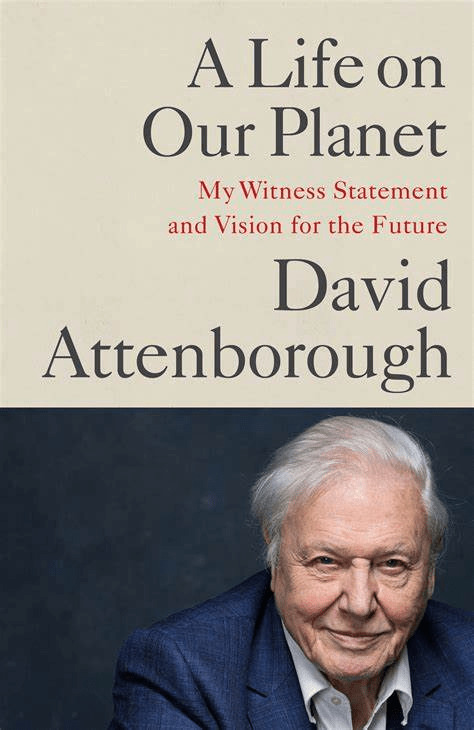David Attenborough: A Life on Our Planet, 2020.
ISBN 978-1-5387-1998 226 pages.
The book is a witness statement of the decline of the biodiversity on Earth. From the famous picture Earth Rise to today, Sir Attenborough describes the increase in human population and atmospheric carbon dioxide as well as the reduction of the Earth’s wilderness in time.
It’s a wonderful book to read, including beautiful references to nature’s beauty, e.g. the sound of humpack whales (e.g. https://www.youtube.com/watch?v=29l12h1Ks38). Some quotes, and I have been rather selective:
- Page 66: “Our behaviour and our societies have become increasingly detached from the natural environment that surrounds us.”
- Page 75: “If we do things that are unsustainable, the damage accumulates to a point when ultimately the whole system collapses.”
- Page 100: “We have become accustomed to an impoverished planet.”
- Page 121: “To restore stability to our planet, therefore we must restore its biodiversity…. We must rewild the world.”
- Page 125: “We moved from being part of nature to begin apart from nature.”
- Page 220: “The next few decades represent a final opportunity to build a stable home for ourselves and restore the rich, healthy and wonderful world that we inherited from our distant ancestors. Our future on the planet, the only place as far as we know where life of any kind can exist, is at stake.”
I found the concept of shifting baseline syndrome very interesting. Page 85: “Each generation defines the normal by what it experiences. We expect less and less… because we have never known for ourselves what riches it once provided and what it could again.” Also in my hometown area I’ve heard stories about the natural riches in the recent past from my father and uncles. Much of it has gone, and also in my lifetime many species are reduced, notably those depending on agricultural land. So, my personal baseline is more limited than that of my father, and probably the one of my children will be even lesser.
Sir Attenborough describes his vision for the future as follows:
- Moving beyond the desire for economic growth;
- Switching to clean energy; page 146: “Nature-based carbon capture is where governments, fund-managers and business should be investing.”
- Rewilding the seas;
- Taking up less space, notably for meat and dairy production;
- Rewilding the land;
- Planning for ‘peak human’: the moment the world’s population stops growing; and
- Achieving more balanced lives: no food waste, circular economy, green cities like Singapore, etc.
There is also a great BBC series with the same title.
I enjoyed reading the book. We need to act, but may take courage, despite the odds, from the positive examples Sir Attenborough presents in the book, such as the increase in numbers of Blue whales, the rescue of the Hawaian goose and the Grey wolves of North America. Or in his own words: “It seems that, however great our mistakes, nature will be able to overcome them, given the chance.”
